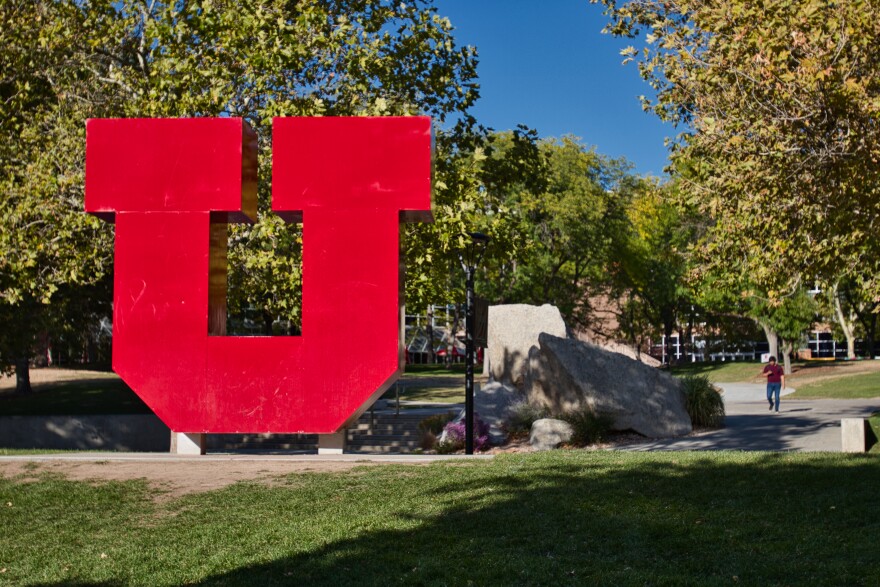The University of Utah opened applications on Nov. 1 for its new scholarship for Indigenous undergraduate students who are members of one of the federally recognized tribes in Utah. The scholarship covers tuition and all mandatory fees.
The current scholarship application is only available to current undergraduate students for the Spring 2023 semester and is renewable for up to eight semesters. Incoming students will be able to apply in March 2023 for the Fall 2023 semester.
The university joins a growing number of colleges nationwide that offer free or discounted tuition for Native students. Director of the University of Utah’s American Indian Resource Center Samantha Eldridge said being able to afford college can prevent Native students from graduating from college and applying in the first place.
“I’m really excited about this program and the opportunities and access that will open up for Native students. As a Native person who’s enrolled in a Navajo tribe and a first-generation college student, being able to afford college was a barrier to me,” she said.
The National Study on College Affordability for Indigenous Students by the National Native Scholarship Providers reported that 72% of study participants who currently had a scholarship from the National Native Scholarship Providers had run out of money at least once in the previous six months. And 16% of all study participants reported experiencing homelessness during higher education.
University of Utah President Taylor Randall first announced the scholarship in July.
“My vision for the U is to impact the lives of all 3.3 million Utahns,” Randall said in a press release at the time. “This includes members of Utah’s tribal nations. This is a vital part of committing the U to deliver a transformative educational experience to communities across Utah.”
There is no GPA requirement to qualify for the scholarship. Students don’t have to demonstrate financial need, but they do have to be attending school full-time, prove they are an enrolled member of one of the federally recognized tribes in Utah eligible for in-state tuition and fill out the Free Application for Federal Student Aid.
The tribes that are eligible are:
- Confederated Tribes of the Goshute Reservation
- Navajo Nation (Diné)
- Northwestern Band of Shoshoni Nation of Utah (Washakie)
- Paiute Indian Tribe of Utah (Cedar City Band of Paiutes, Kanosh Band of Paiutes, Koosharem Band of Paiutes, Indian Peaks Band of Paiutes, and Shivwits Band of Paiutes)
- Skull Valley Band of Goshute Indians of Utah
- Ute Indian Tribe of Uintah & Ouray Reservation, Ute Mountain Tribe of the Ute Mountain Reservation
- Hopi
- Zuni
- Shoshone-Bannock
Each tribe has different eligibility requirements for becoming an enrolled member, and Eldridge said they’ll accept multiple forms of documentation to verify the student’s membership.
Heather Tanana, an assistant professor at the University of Utah’s S.J. Quinney College of Law and a member of the Navajo Nation, said providing free tuition is a step in the right direction. She added, however, that more needs to be done to support Native students in higher education.
“Unless our students feel welcome and supported, that’s going to be another barrier to retention and graduating. And so we need to make sure that we’re providing the tools for success for our students once they do come, not just financially, but that they have the resources to feel like they belong,” she said.
Tanana suggested the university create tools for Native students to succeed academically, like study groups, and that the university needs to be a safe environment for Native students.
She pointed to an incident that happened in early September where a Native American UofU student was practicing traditional and cultural dances at the Student Life Center. Someone took a video of the student dancing and posted it on social media with the caption “Catch me at the bars tonight like…” The video was reposted multiple times and at least one post included a stereotypical and derogatory remark, according to the university.
Tanana said this incident shows the university still has work to do to create a safer environment for Native students. The university is working on another program to provide more “holistic” support to Native students, according to Eldridge, including help with personal and social development.
There are 574 federally recognized tribes nationwide, and Tanana predicts there are University of Utah students who are Native American but are not eligible for the scholarship. On average, there are 120 students each year who self-identify as American Indian or Alaska Native, according to the university. But there isn’t any data on how many of those students are members of tribes in Utah and would therefore qualify.
“If you care about it, if you say you're supportive of it, you show it with the dollars. So we have money right now that the U has to support scholarships for this smaller group. If this is truly an issue, Native education, then hopefully we'll see the financial support to expand out the program in the future,” she said.


